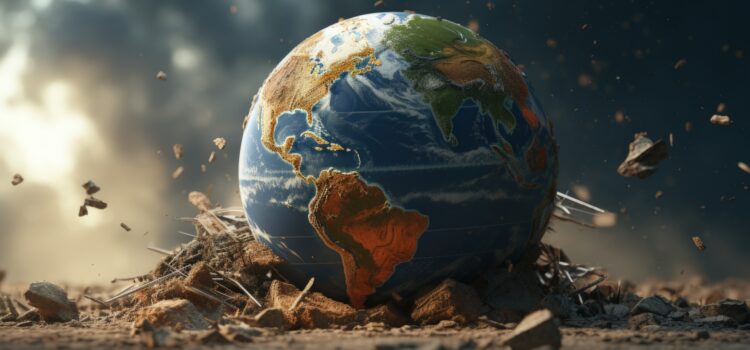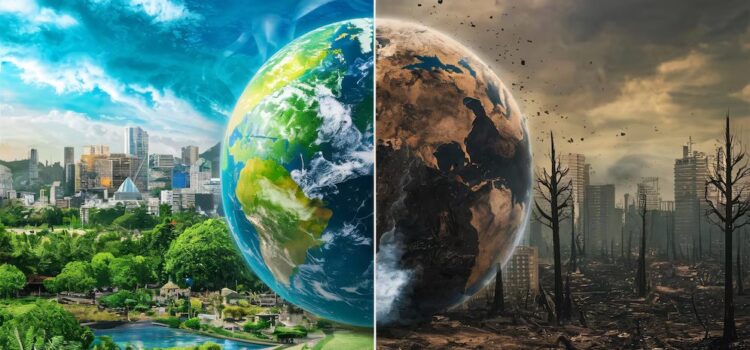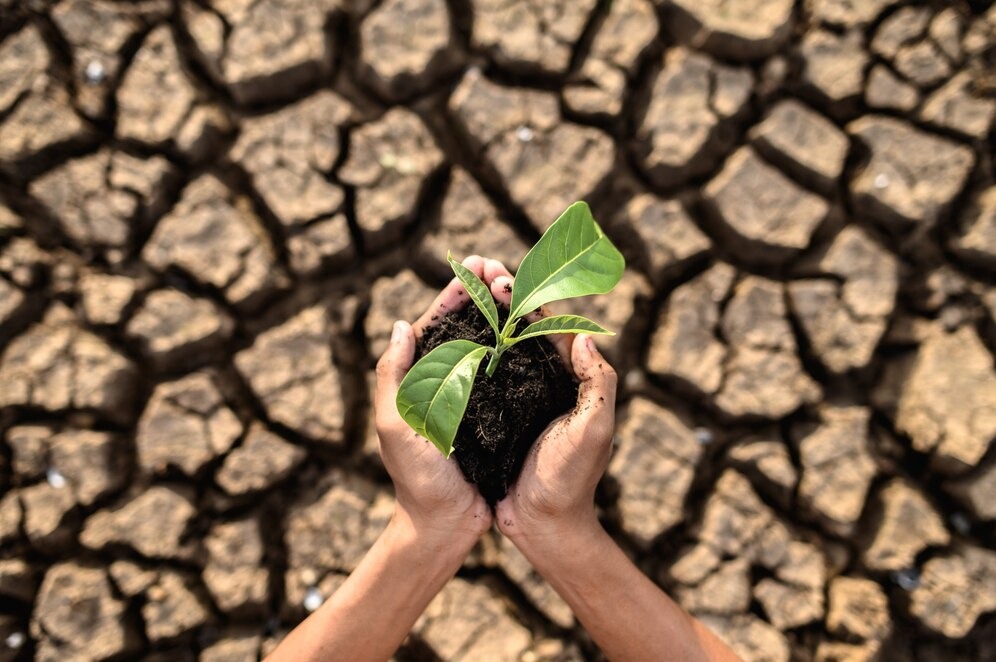Preface: A World in Flux, Resources at Stake
In our increasingly interconnected era, the reverberations of geopolitical shifts extend far beyond national borders, casting ripples that disrupt the delicate balance of global resource dynamics undergoing a dramatic transformation. Energy, food, and critical materials – the lifeblood of modern civilization – find themselves caught in the crosscurrents of these tectonic changes. The intricate web of relationships between nations and natural resources is undergoing a dramatic transformation.
As nations grapple with the ensuing challenges, the clarion call for robust international governance frameworks grows ever more urgent, a beacon guiding us toward a future of resource resilience and shared prosperity. Geopolitical tremors, from escalating tensions to the ever-present threat of climate change, are fundamentally reshaping the dynamics of energy, food, and critical materials on a global and national scale.
Energy: From Abundance to Precarious Balance
The traditional energy landscape, dominated by fossil fuels, finds itself at a crossroads. On one hand, geopolitical machinations are causing market volatility. The ongoing conflict between major oil producers has disrupted supply chains, leading to price spikes and a climate of uncertainty. This is particularly concerning for countries heavily reliant on imported fossil fuels, as their energy security hinges on the whims of external forces.
On the other hand, the global push for clean energy is altering the equation. The race to develop and dominate the market for renewable technologies and the minerals needed for their production is creating new geopolitical hotspots. Countries rich in lithium, cobalt, and other critical materials find themselves in a position of power, potentially leveraging their resources to gain political and economic advantage. This shift towards a multipolar energy landscape, while promising in terms of sustainability, also carries the risk of new resource-based conflicts.
Food Security: A Looming Crisis with Geopolitical Implications
Food security, the cornerstone of global stability, is feeling the tremors of geopolitical shifts. Climate change disrupts agricultural production patterns, leading to unpredictable yields and potential shortages. The frequency and intensity of extreme weather events, exacerbated by a warming planet, threaten harvests in vulnerable regions. Political instability and conflict further exacerbate the situation, disrupting food distribution channels and displacing populations who rely on local agriculture.
The geopolitical dimension of food security also manifests in the form of export bans and restrictions. Countries, fearing domestic shortages, may limit exports to ensure their own populations have access to essential food staples. This protectionist approach creates ripple effects throughout the global food system, potentially leading to price hikes and shortages in importing nations.
Critical Materials: The New Geopolitical Battleground
The green revolution hinges on access to critical materials – the minerals essential for developing renewable energy technologies, electric vehicles, and other sustainable infrastructure. Unfortunately, the supply chains for these materials are often geographically concentrated, with a handful of countries controlling a significant portion of global production. This concentration creates a new geopolitical battleground, where nations holding the keys to these minerals can exert significant influence.
Furthermore, the extraction of critical materials often raises environmental and social concerns. Unethical mining practices and inadequate regulations can lead to environmental degradation and human rights abuses. Geopolitical competition for these resources risks intensifying these issues, prioritizing short-term economic gains over long-term environmental and social sustainability.
Building Resilience: A Collaborative Approach to Resource Security
In the face of these multifaceted challenges, the need for robust international frameworks for resource governance is paramount. Here are some key strategies to consider:
- Diversification and Investment:Diversifying energy sources, including a strong focus on renewables, and investing in sustainable agricultural practices can reduce reliance on a single source or region. International cooperation can facilitate knowledge sharing and technology transfer, enabling broader participation in the clean energy and sustainable agriculture revolutions.
- Transparency and Open Markets:Establishing transparent trade regimes and promoting open markets for critical materials can mitigate the risks associated with resource nationalism and hoarding. Trade agreements should be coupled with strong environmental and social safeguards to ensure sustainable extraction practices.
- Strategic Reserves and Stockpiling:Creating international stockpiles of essential food staples and critical materials can act as a buffer against sudden disruptions and price shocks. These reserves should be managed collaboratively by a diverse group of nations to prevent manipulation by any single actor.
- Global Sustainability Goals:Integrating resource security considerations into broader global sustainability goals such as the UN Sustainable Development Goals (SDGs) can create a more holistic approach. This would address the interconnectedness of resource security, climate change, and sustainable development.
- Empowering International Institutions:International organizations like the World Trade Organization (WTO) and the Food and Agriculture Organization (FAO) need to be empowered to play a more active role in fostering dialogue and cooperation on resource management. Their capacity to monitor resource flows, mediate disputes, and enforce regulations should be strengthened.
By implementing these strategies and strengthening international governance frameworks, nations can navigate the complex and shifting resource landscape. Through collaborative action, they can ensure equitable access to resources, address geopolitical vulnerabilities, and lay the groundwork for a more secure and sustainable future for all.
Epilogue: For the move toward Resource Resilience
By embracing the principles of inclusivity, transparency, and shared responsibility, nations can navigate these uncharted waters and chart a course toward a future of resource resilience and security. Through collaborative governance, investment in sustainable solutions, and an unwavering commitment to global cooperation, we can mitigate risks, reduce vulnerabilities, and ensure that the world’s critical resources remain accessible to all, fueling progress and prosperity for generations to come.
“The disruption of food supplies due to the ongoing geopolitical tensions is a major threat to global food security, especially for the most vulnerable populations.” – David Beasley, Executive Director of the World Food Programme (April 2024)
“The race for critical minerals will be a defining aspect of geopolitics in the coming decades. We need to ensure responsible sourcing and avoid creating new vulnerabilities in our supply chains.” – Al Gore, Former Vice President of the United States (March 2024)
Author: Ashok Kumar Mittal, a distinguished Member of Parliament in India’s Upper House (Rajya Sabha), stands as a prominent figure bridging legislative governance and transformative education. His remarkable journey is characterized by a steadfast commitment to ethical principles and a visionary approach that has positively influenced numerous lives. Notably, Dr. Mittal serves as the esteemed Founder Chancellor at Lovely Professional University, a testament to his enduring dedication to societal improvement.
Dr. Mittal, a law graduate from Guru Nanak Dev University, further solidifies his academic prowess with an honorary Doctorate from Atal Bihari Vajpayee University (ABVU), Chhattisgarh. Beyond the realm of political power, his impact extends beyond enacted policies to the tangible difference he has made in the lives of countless individuals. Dr. Mittal’s leadership philosophy, deeply rooted in ethical principles, permeates every facet of his work, emphasizing that true leadership goes beyond mere position, focusing on creating a positive and enduring impact on society.



